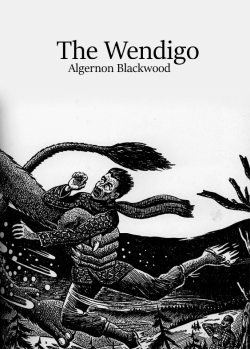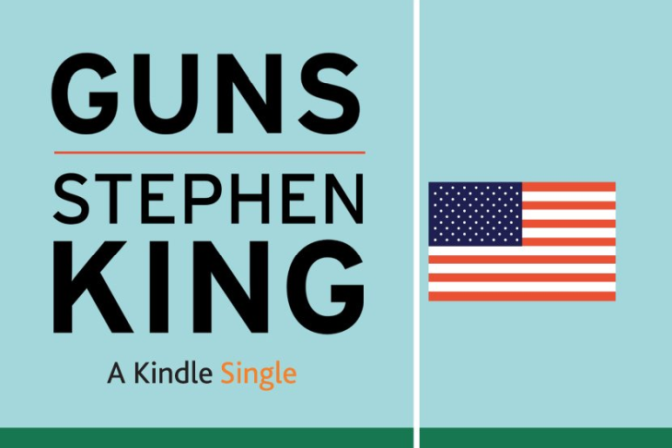Category: Book Review
The Wendigo

 Title: The Wendigo
Title: The WendigoAuthor: Algernon Blackwood
Publisher: Public Domain
First Published: January 1, 1910
Pages: 50
Genres: Classics, Horror, Paranormal
Format: Ebook
Source: Free, Public Domain
Rating: ★★★½

Synopsis:
The Wendigo is an influential horror novella by Algernon Blackwood, which was first published in a collected fiction book called The Lost Valley and Other Stories, in 1910. The story follows a doctor, his nephew, and their party on a moose hunting trip into the deepest wilderness of northern Canada. Things take a turn as the party split up and one begins to follow non-human tracks...
My Review:
Wendigos are some of the most terrifying specters of Algonquin folklore, a malevolent spirit that is often associated with winter, starvation, cannibalism, and death. The Wendigo reads like a campfire ghost story told around hunting circles about the unexplainable phenomena that can only be experienced in the farthest reaches from civilization.
The story follows a moose-hunting party on their trek into the woods near the end of the fall season. The untamed wilderness leaves the hunters struck with awe at the beauty and terrible loneliness of the Candian wilderness. The writing is a master craft of atmosphere, as the adventure displays the majesty of nature and the ever-powerful call that it has on the hearts and minds of men. The terrifying silence of the natural world feels oppressive, feeling like a monster that swallows up the hunting camp.
The one glaring issue that holds this classic down is the casual racism that is used to describe character traits. While understandable for the time period in which it was written, it is archaic and simply unpleasant to read. A blemish on an otherwise superbly written story, a terrible shame really.
Even so, this book stands as a classic that brought a part of First Nations folklore into the literary canon and influenced other horror writers and filmmakers in the decades after it was written. The Wendigo is a testament that the unseen horror can be just as effective without the excessive blood and gore of more contemporary fiction. A true delight for the senses as the tightly written prose evokes both fear and wonder in readers for generations.
“Men were sometimes stricken with a strange fever of the wilderness, when the seduction of the uninhabited wastes caught them so fiercely that they went forth, half fascinated, half deluded, to their death.”
Trigger Warning: Racism, Violence
Narrative of the Life of Frederick Douglass, an American Slave

My Thoughts
What blows my mind about this book is how incredibly readable and accessible it is, considering the fact that it was written over a century ago. Frederick Douglass was a fugitive slave and a prominent leader of the abolitionist movement. While in captivity, Douglass worked hard to teach himself how to read and write, viewing literacy and education as his means to freedom.
“Power concedes nothing without demand. It never did and it never will… Men may not get all they pay for in this world, but they must certainly pay for all they get.”
The narrative discusses Douglass’s experiences as both a plantation slave and a personal family slave in the city, working skilled labor and paying his wages to his master. I never knew how drastically different the conditions were from plantation to city, and the book provides a lot of detail that is often lost in a general history of American slavery.
The appendix also contained an incredibly powerful criticism of how pervasive religion was among the Southern slaveholding populace, calling out slave owners on their hypocrisy. Everything about this narrative was just incredible, and it is a wonderful historical piece to study.
Frederick Douglass truly lives up to his reputation for having a gift for storytelling and his writing is powerful, I wish I could’ve heard him speak. He is one of the most admirable historical figures I’ve encountered and I regret not reading this book sooner. If there was one memoir I could ever recommend to anyone on the subject of slavery, it would be this one.
Warnings: violence, racism
Guns

My Thoughts
I thought that I couldn’t love Stephen King any more than I already do being a long time fan of his short stories, but damn do I love when he writes non-fiction. Guns is a no-nonsense essay about gun violence in America, focusing on mass shootings and the factors that contribute to them.
“Semi-automatics have only two purposes. One is so owners can take them to the shooting range once in awhile, yell yeehaw, and get all horny at the rapid fire and the burning vapor spurting from the end of the barrel. Their other use – their only other use – is to kill people.”
He doesn’t hold back and he talks pretty frankly on the topic. Specifically, he details the difficulties we have in America with political discourse (and the utter lack thereof) which prevents us from really enacting any kind of meaningful change. I wish that people both on the left and the right of the political spectrum could take a minute to settle down, put their differences and their personal pride aside to pull us all together, put on our thinking caps, and think about some reasonable action to make our every day lives safer.
King also takes some time aside to talk about his first story, which he has since taken out of print, a book about a high school shooting called Rage. He discusses where he was when he wrote it, why he took it out of print and makes a strong argument against the assumption that America is ruled by “a culture of violence.” This point in particular I find important as certain forms of media (most commonly video games) are often blamed for gun violence, despite numerous studies that dispel this myth. He also makes a pretty strong argument on the debate on where culpability lies: the person or the weapon.
“We’re like drunks in a barroom. No one’s listening because everyone is too busy thinking about what they’re going to say next, and absolutely prove that the current speaker is so full of shit he squeaks.”
While King is slightly leaning to the left, he takes a middle road approach to most of his stances and offers suggestions on what can be done, and I agree with him wholeheartedly. This essay was great; it’s a quick read and I would strongly recommend it to anyone with even the slightest interest in the gun issue, both those that are for and against gun control. Even if you don’t agree with him, I think it’s a good conversation starter, as opposed to both sides just yelling at each other without trying to consider compromise.
